
Bruce Bower has written about the behavioral sciences since 1984. He often writes about psychology, anthropology, archaeology and mental health issues. Bruce has a master's degree in psychology from Pepperdine University and a master's degree in journalism from the University of Missouri. Following an internship at Science News in 1981, he worked as a reporter at Psychiatric News, a publication of the American Psychiatric Association, until joining Science News as a staff writer. In 1996, the American Psychological Association appointed Bruce a Science Writer Fellow, with a grant to visit psychological scientists of his own choosing. Early stints as an aide in a day school for children and teenagers with severe psychological problems and as a counselor in a drug diversion center provided Bruce with a surprisingly good background for a career in science journalism.

Trustworthy journalism comes at a price.
Scientists and journalists share a core belief in questioning, observing and verifying to reach the truth. Science News reports on crucial research and discovery across science disciplines. We need your financial support to make it happen – every contribution makes a difference.
All Stories by Bruce Bower
-
 Archaeology
ArchaeologyLidar reveals a possible blueprint for many Olmec and Maya ceremonial sites
An Olmec site forged a building plan more than 3,000 years ago for widespread Olmec and Maya ritual centers across Mexico’s Gulf Coast.
-
 Archaeology
ArchaeologyVikings lived in North America by at least the year 1021
Wooden objects provide the most precise dating yet of a Norse settlement in Newfoundland.
-
 Science & Society
Science & SocietyMethods of getting results from real-world experiments win 2021 economics Nobel
David Card, Joshua Angrist and Guido Imbens share the Nobel Memorial Prize in Economic Sciences for developing a science of naturally occurring social studies.
-
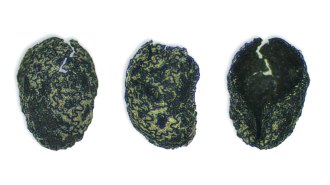 Archaeology
ArchaeologyThe earliest evidence of tobacco use dates to over 12,000 years ago
Burned seeds at an archaeological site in Utah hint at tobacco’s popularity long before it was domesticated.
-
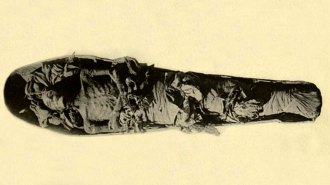 Anthropology
Anthropology50 years ago, X-rays revealed what ancient Egyptians kept under wraps
In the 1970s, scientists used X-rays to unravel mummy secrets. Now, advances in technology are providing unprecedented views of ancient Egyptians.
-
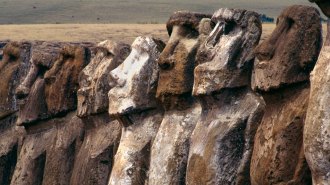 Genetics
GeneticsDNA offers a new look at how Polynesia was settled
Modern genetic evidence suggests that statue builders on islands such as Rapa Nui, also known as Easter Island, had a shared ancestry.
-
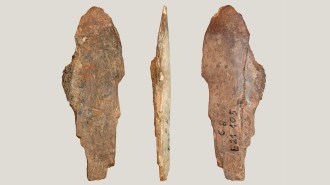 Archaeology
ArchaeologyStone Age people used bone scrapers to make leather and pelts
African cave finds include remains of skinned creatures and hide scrapers made from animal ribs.
-
 Anthropology
AnthropologyStone Age humans or their relatives occasionally trekked through a green Arabia
Hominids periodically inhabited ancient Arabia starting around 400,000 years ago when lakes temporarily formed as a result of monsoons, a study finds.
-
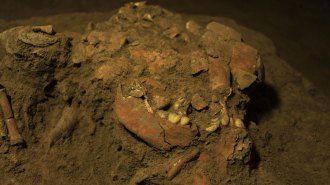 Anthropology
AnthropologyAncient DNA shows the peopling of Southeast Asian islands was surprisingly complex
Ancient DNA from a hunter-gatherer skeleton points to earlier-than-expected human arrivals on Southeast Asian islands known as Wallacea.
-
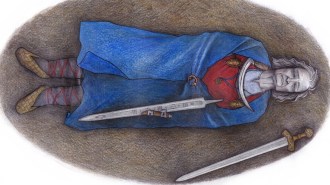 Archaeology
ArchaeologyA 1,000-year-old grave may have held a powerful nonbinary person
A medieval grave in Finland, once thought to maybe hold a respected woman warrior, may belong to someone who didn’t have a strictly male or female identity.
-
 Psychology
PsychologyHow the strange idea of ‘statistical significance’ was born
A mathematical ritual known as null hypothesis significance testing has led researchers astray since the 1950s.
-
 Genetics
GeneticsAn Indigenous people in the Philippines have the most Denisovan DNA
Genetic comparisons crown the Indigenous Ayta Magbukon people as having the most DNA, 5 percent, from the mysterious ancient hominids.